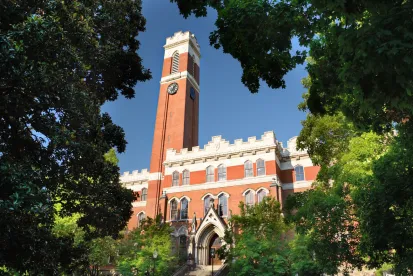As the country looks to reopen after the COVID-19 pandemic, the National Governors Association (NGA) published guidance to help states identify and mitigate the effect on higher education. School closures may be on the horizon, but the NGA encourages states to minimize the impact of those closures by increasing oversight, identifying at-risk institutions, and implementing measures to protect students enrolled at those institutions. Connecticut has already issued a report that discusses some of these measures, with an increased focus on the public health requirements of reopening. These are just the first in what is sure to be a flurry of recommendations.
1. The National Governors Association focuses on continuing financial viability.
The NGA focused on the financial aspects of reopening colleges and universities, with a focus on increased oversight, financial strength testing, and protections for students attending “at-risk schools.” The primary recommendations were the following:
-
Collaborative Oversight – The NGA suggests that states facilitate the flow of information among local, state, and national entities. These efforts should focus not only on the major players in higher education oversight – the state’s higher education executive office, accrediting agencies, and the U.S. Department of Education – but also on state-level agencies and boards that oversee functions like veterans’ program approvals, workforce eligible training provider lists, occupational licensure processes, and non-degree training providers. Institutions should be ready to provide consistent messaging to an increasing variety of oversight agencies.
-
Operational Scrutiny – Colleges and universities should expect states to keep a close eye on operational data, such as enrollment figures, changes in education plans (e.g., shift to online learning, temporary suspension of operations), and complaints. The NGA notes that complaints often foretell problems with quality or fraud. Similarly, the NGA warns states to look out for consumer protection violations as schools expand online programs.
-
Financial Monitoring – The NGA advises states to monitor institutions’ finances to identify those at risk of closure. Reviewing financial responsibility composite scores, degree of dependence on tuition, and cash flow were identified as critical factors.
-
Closure Plans – The NGA also advised states to anticipate increased school closures and take preemptive measures to protect students. The NGA suggested implementing two types of programs. First, states should require at-risk institutions to develop teach-out plans and form teach-out agreements in the event of closure. The plans would give students enrolled in closing institutions the opportunity to earn a degree through an agreement with another institution. Second, states should ensure that at-risk institutions have a records-management plan that provides easy access to transcripts, loan information, and other enrollment information.
2. State plans focus on public health concerns.
The NGA’s recommendations come as states are reaching critical decision points with respect to their colleges and universities. In Connecticut, for example, an advisory committee for Governor Ned Lamont just issued a report calling for the state and its institutes of higher learning to develop standards for reopening. The state is to create “gating conditions” that will require it, among other things, to closely monitor institutions’ COVID-19-related supplies (e.g., tests, PPE). For their part, institutions will have to draw detailed plans for repopulation of their campuses, along with disease detection, containment, and shut down protocols. As with the NGA forecast though, uncertainty is paramount – Connecticut’s advisory committee acknowledges that conditions might warrant reopening as early as June, but recommends that schools plan for both reopening and for continued online learning in the fall.
3. Conclusion
As the economy reopens following the COVID-19 crisis, colleges and universities should pay careful attention not only to the public health risk, but also increased financial scrutiny from their state regulatory bodies. Focusing on both aspects will ensure students return to a campus that is both physically safe and financially secure.





 />i
/>i

